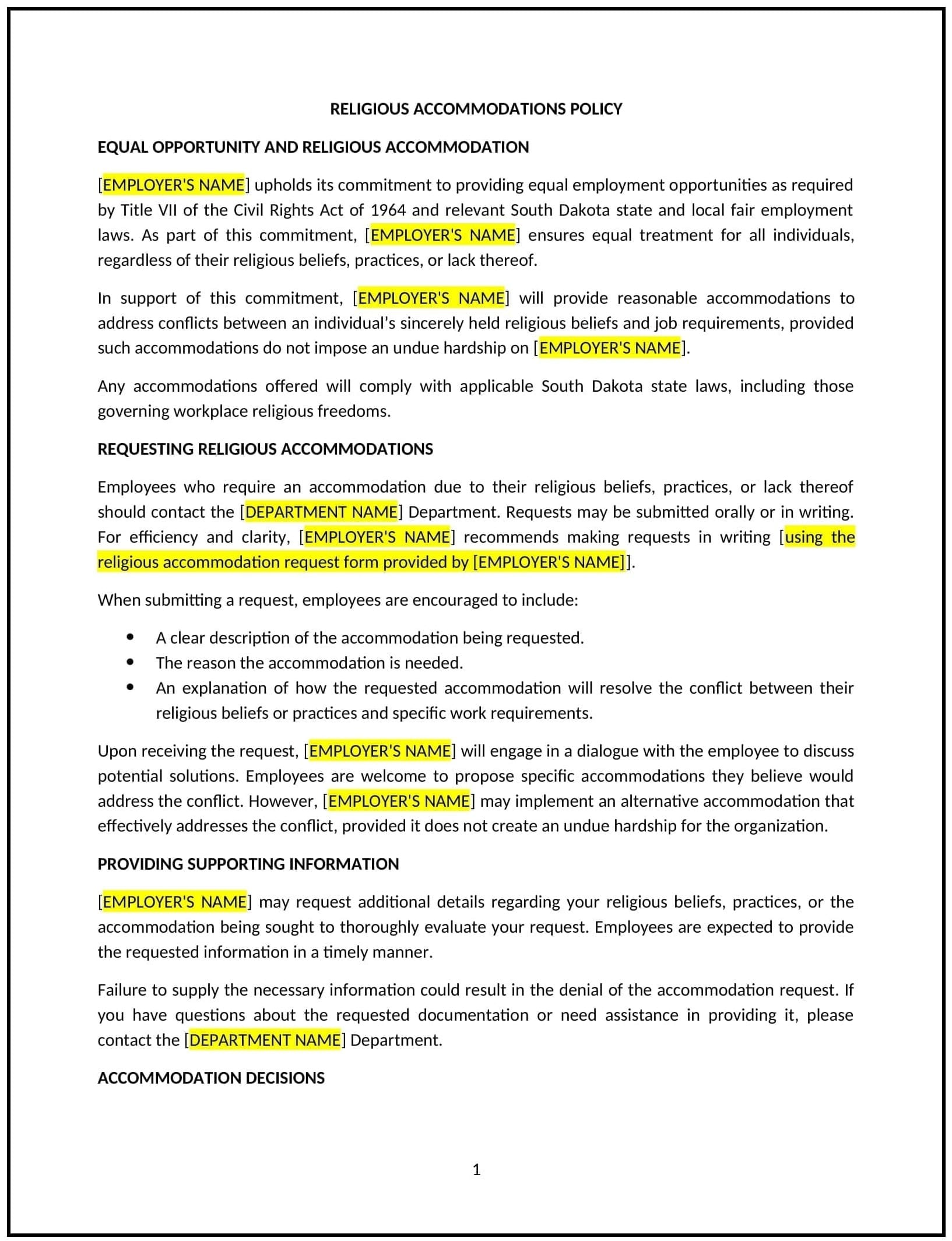Religious accommodations policy (South Dakota): Free template
Got contracts to review? While you're here for policies, let Cobrief make contract review effortless—start your free review now.

Customize this template for free
Religious accommodations policy (South Dakota)
This religious accommodations policy is designed to help South Dakota businesses establish guidelines for accommodating employees’ religious beliefs and practices. It outlines procedures for requesting and implementing accommodations.
By adopting this policy, businesses can promote inclusivity, enhance employee satisfaction, and align with general best practices for workplace diversity.
How to use this religious accommodations policy (South Dakota)
- Define religious accommodations: Explain what constitutes a religious accommodation, such as time off for religious holidays or dress code modifications.
- Establish request procedures: Provide steps for employees to request accommodations, including required documentation and timelines.
- Address implementation: Specify how accommodations will be implemented, such as scheduling adjustments or workspace modifications.
- Train managers: Educate supervisors on handling accommodation requests and maintaining an inclusive work environment.
- Monitor implementation: Regularly review accommodation requests to ensure adherence to the policy.
- Review and update: Assess the policy annually to ensure it aligns with evolving business needs and inclusivity standards.
Benefits of using this religious accommodations policy (South Dakota)
This policy offers several advantages for South Dakota businesses:
- Promotes inclusivity: Demonstrates a commitment to supporting employees’ religious beliefs and practices.
- Enhances employee satisfaction: Provides accommodations that respect employees’ religious needs, boosting morale and retention.
- Reduces conflicts: Minimizes potential misunderstandings or disputes related to religious practices.
- Builds trust: Shows employees that the business values their beliefs and well-being.
- Supports best practices: Aligns with industry standards for workplace diversity and inclusion.
Tips for using this religious accommodations policy (South Dakota)
- Communicate the policy: Share the policy with employees and include it in the employee handbook.
- Provide training: Educate managers on handling accommodation requests and maintaining an inclusive work environment.
- Monitor implementation: Regularly review accommodation requests to ensure adherence to the policy.
- Address issues promptly: Take corrective action if accommodation requests are mishandled or denied improperly.
- Update regularly: Assess the policy annually to ensure it aligns with evolving inclusivity standards.